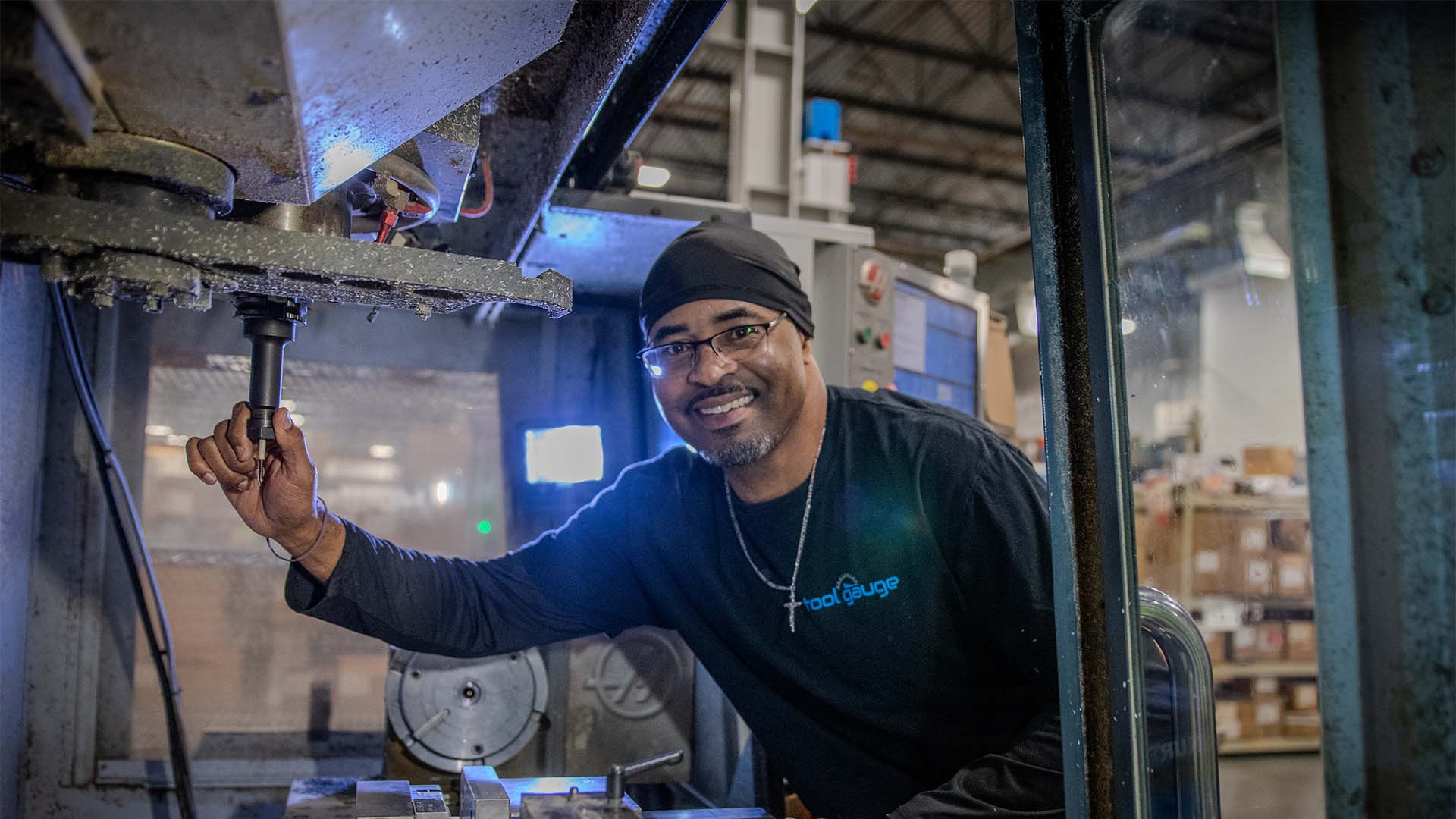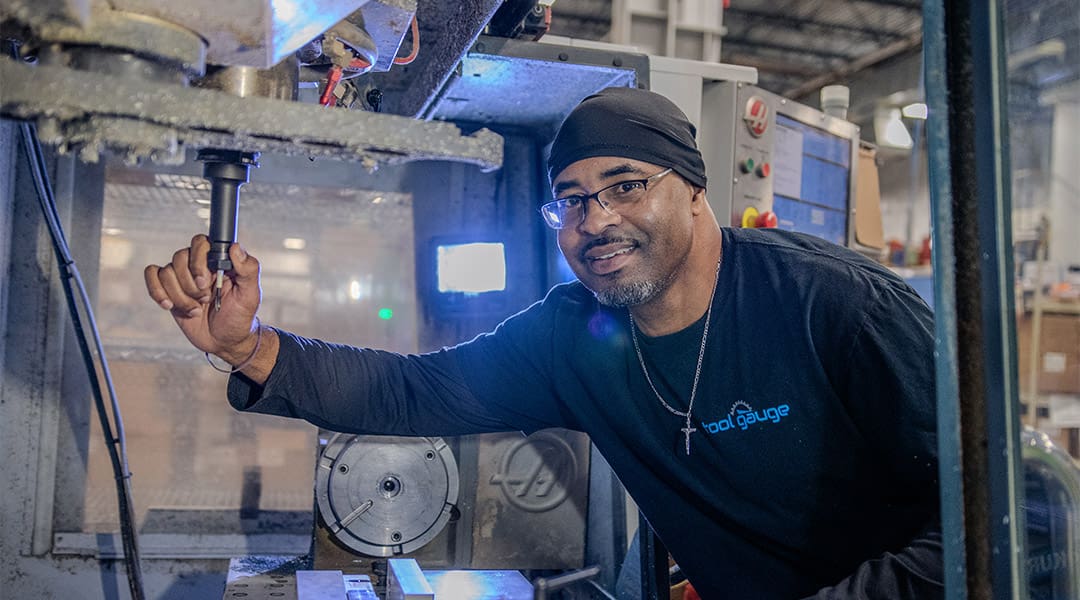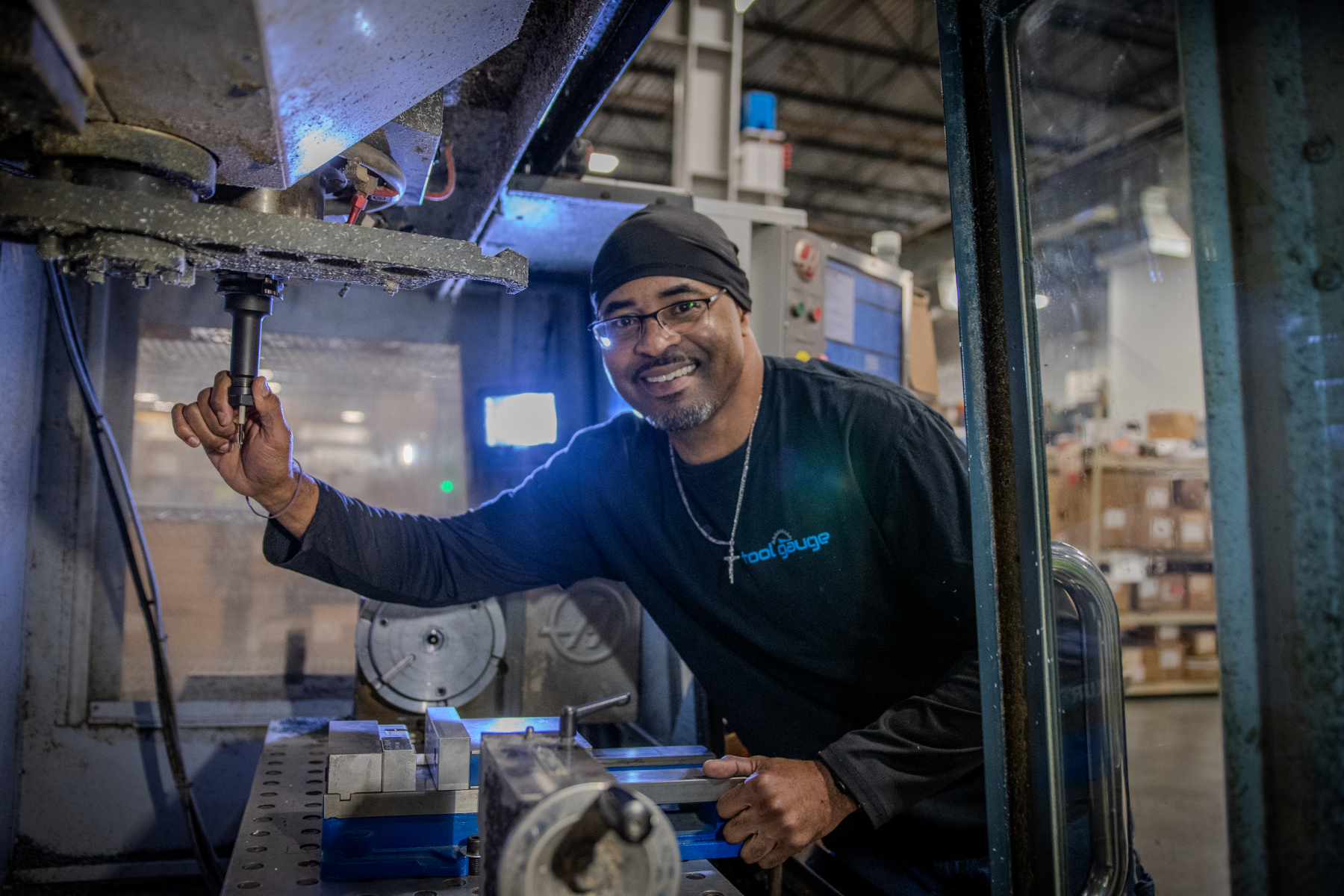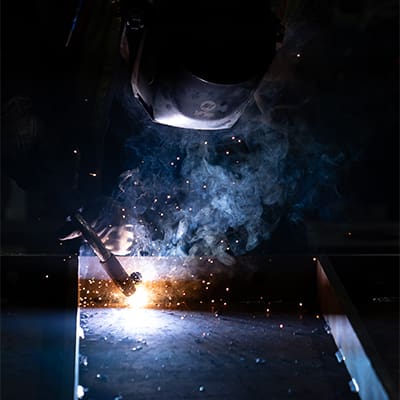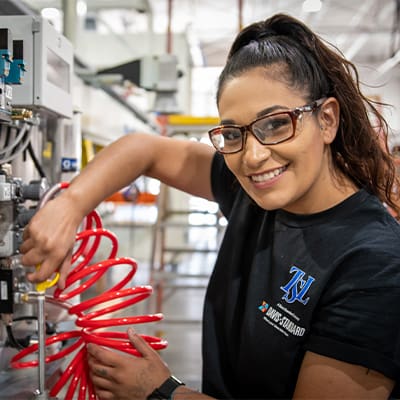Adolphus Redding’s life took a transformative turn when he faced the reality of a potential life sentence. In the midst of dealing with unresolved childhood traumas, he saw an opportunity for change, viewing it as his last chance for redemption. Adolphus recognized that his criminal acts were born out of frustration, and to get back on track, he committed to working every day, disciplining himself, and engaging in a positive program that would reshape his future.
“I really looked at myself because I was dealing with childhood traumas that I hadn’t addressed. And so for me, it was more of a, Hey, this is probably your last chance. I was facing a life sentence,” Adolphus reflects on the pivotal moment that prompted his commitment to change.
Now employed as a machine operator at Tool Gauge and undergoing training as a machinist through AJAC, Adolphus finds purpose and fulfillment in his work. “I am a machine operator, but I am a machinist in training, if that makes sense,” he explains. Running parts, performing setups, and adhering to intricate manufacturer specifications are all part of his daily routine. The meticulous attention to detail required in machining resonates with Adolphus, who sees the process as a beautiful blend of creativity and precision. He reflects on the therapeutic nature of tasks like deburring, illustrating how engaging with the creative aspects of his job has become an essential part of his redemption journey.
“Again, machining is a wonderful tool for people who are coming out of incarceration or any of these adverse backgrounds,” Adolphus advocates for the unique opportunities machining offers. “Here we’re dealing with numbers. Things are about precision, things are about attention to details. So anyone that’s got any kind of aptitude to do those things would greatly excel in a position such as this.”
Adolphus believes that the skills acquired in machining are not only transferable but can also significantly contribute to reducing recidivism in society. Adolphus encourages individuals with a heart for redemption to explore opportunities in programs like machining, emphasizing that being an open book and humble are crucial qualities for success.
In sharing his experiences, Adolphus emphasizes the collective learning environment within the machining program. From on-the-job training to classroom discussions, he highlights the importance of gaining insights into essential processes and the tricks of the trade. His story stands as a testament to the power of visibility and inspiration, showing others that regardless of their past struggles, they too can find success in machining. As he gives back and encourages those with a heart for redemption to explore opportunities in programs like machining, Adolphus exemplifies the positive impact such initiatives can have on individuals and society as a whole.
